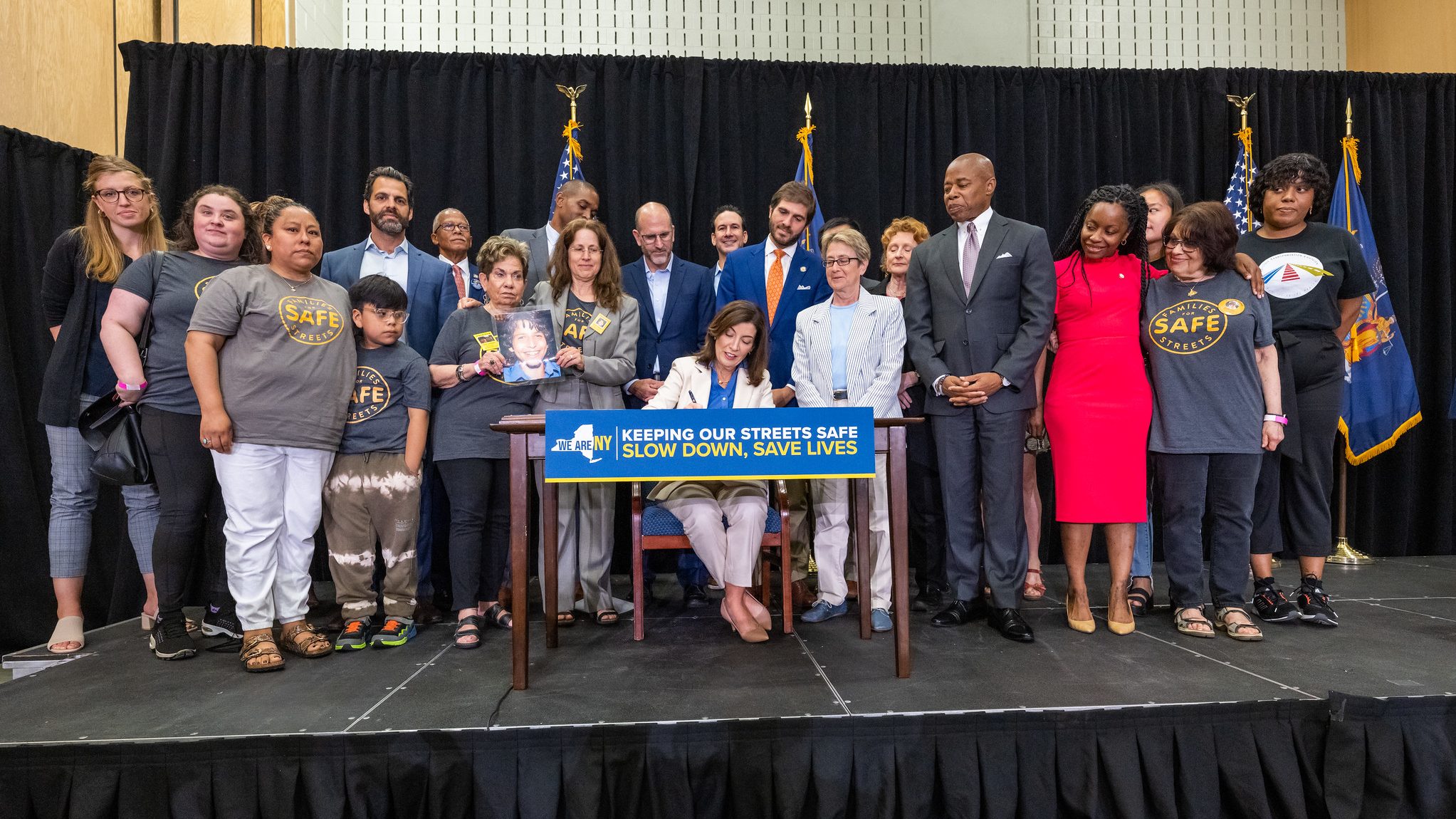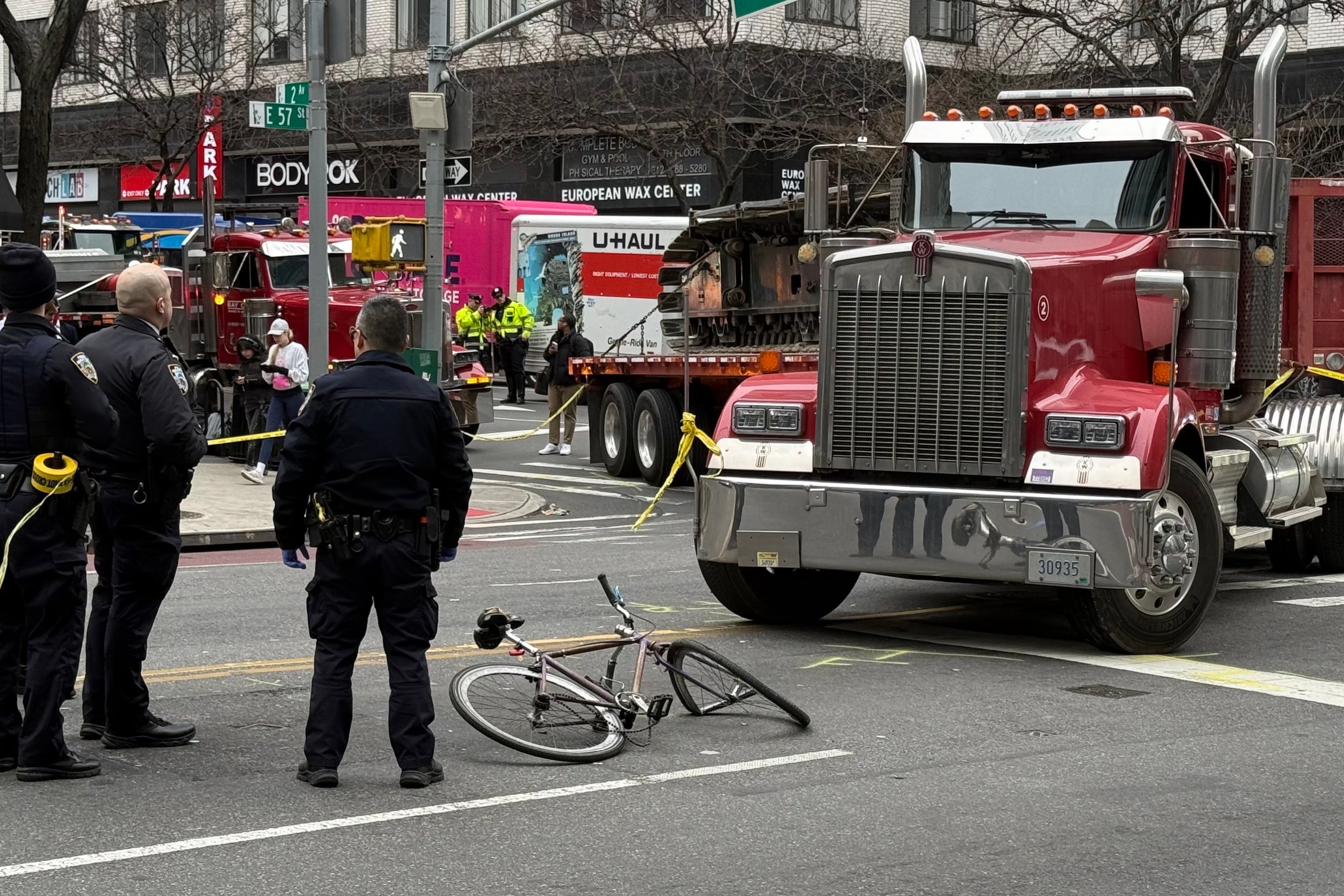At times in this whole transportation reauthorization process, it’s been hard to see the way forward. House Republicans refuse to deficit-spend their way out of the funding conundrum, and Democrats haven’t gotten behind a coherent plan to come up with more revenues, though they’re still arguing for a bigger bill. Still, I’ve been reporting on the bill as if it’s bound to happen, one way or another. Secretary Ray LaHood has been unflinching in his optimism that a bill will pass this year. But the more I talk to experts, I realize: This thing probably isn't going to happen.
I’m not going to quote any of them by name, because I don’t want to risk getting them in trouble with the Congressional leaders that are pushing for a six-year bill. But the half-dozen or so people I talked to for this story were unanimous in their skepticism that this year will see anything but another short-term extension, despite the fact that everyone agrees that’s the worst option.
One advocacy leader said he’s generally an optimist, and until a few months ago, he believed there was a 50-50 chance of getting a bill passed this year. (That’s right – even at his most optimistic, those were the best odds he could give it.) In the last month or so, he’s gotten far less cheery on the subject. The administration has refused to provide leadership on the issue, he said. Rahm Emanuel was a strong force pushing for reform within the White House and with him gone (pushing for reform now in Chicago, bless his heart), the fire seems to be gone as well. Besides, my source said, the White House is already in re-election mode.
Other advocates aren't shy about putting the odds at zero. Many say they don’t see how a bill could pass this year, with deadlines getting pushed later and later into the summer. Some sources aren’t convinced the Transportation and Infrastructure Committee even has a bill written. Certainly the staff is working on one, but nobody’s seen it yet. Even some sources inside the administration are wondering what’s up. T&I leaders say they’re waiting to finish the FAA reauthorization before really getting started with the surface transportation bill, and that’s not for nothing – budget cuts in Congress have left the committee short-staffed and they simply don’t have the person-power to shepherd two major initiatives at the same time.
But the time crunch is far from the only problem. The small size of the bill the House is expected to pass could be the kiss of death. "The stakeholders that often drive the process are not going to be as enthusiastic about it if it's a lower level," said one expert. Besides, with a smaller bill (not to mention the program changes and consolidations being proposed), they're going to need to change the funding formulas -- a complex process that takes a long time.
The rift between the six-year bill camp and the two-year bill camp is about to get serious, some say. First of all, sixers have a way of changing their tune when it becomes clear they’d be locking in starvation funding levels for that long. And many people think Sen. Max Baucus wasn’t just talking off the cuff when he proposed a two-year alternative. If that’s his position, he has the power to enforce it, both as chair of the Finance Committee and chair of the Transportation and Infrastructure Subcommittee of EPW. House Transportation Committee Chair John Mica has made no secret of the fact that it’s six years or bust in his book. Some think Baucus will go along if Mica and Boxer insist on a six-year bill. But as one expert told me, “It’s rotten fruit – how much of it do you really want to take home?”
Others say it'll take a "public failure" of the six-year concept before lawmakers will switch to a two-year bill. That failure could well come at Baucus' feet, if T&I and EPW both pass a six-year bill that the Senate Finance Committee then says it can't fund. But if the committees go through that whole process and then go back to the drawing board to craft a two-year bill, will that bill be essentially a "clean" extension of current policy, or will it contain the policy reforms advocates have been pushing for? If it gets down to the wire, even the reforms everyone seems to agree on could be out with the bathwater.
Some experts have speculated that it’s possible for Congress to pass a six-year bill addressing just the policy questions and then a two-year bill with funding levels – but given that they haven’t even dealt with those policy questions yet, that’s an unlikely scenario. Sure, the dollar figure is the 800-pound gorilla, but lawmakers still need to dig their teeth into performance measures, donor/donee states, formulas, local government participation, and environmental streamlining, just to name a few.
If Congress spends long enough banging its head against the wall of a six-year bill, there may not even be enough time to regroup and try for a two-year bill. They’re up against a September 30 deadline – which seemed a pretty generous timeframe when Congress extended the current authorization until then. “It’s late, and they’ve got budget stuff to deal with, and by the time they get done killing each other over this debt ceiling thing I don’t see that there’s any money left,” one insider told me.
“It’s impossible to get anything done in this town anyway and in the last year it’s gotten tougher,” another expert said.
If the September deadline doesn’t leave enough time for a bill so big and so contentious to be passed without extensions – especially with a month-long summer recess between now and then – Congress will be forced to pass an extension. And once you start down the road of extensions, a former DOT official told me, it’s hard to stop. If they end up passing an extension on September 30, it’ll be extensions “forever” – or at least until after the presidential election in 2012. Or even later – political veterans say it takes a while for a new Congress or a new administration to get organized to tackle a bill like this.
That creates a serious fiscal problem because the Highway Trust Fund is approaching insolvency. The highway account is projected to go broke next year and the transit account the year after. A clean extension of current funding levels without new revenue would lead us directly into a crisis when the accounts run out of money.
Could Congress pass a short-term extension just to buy a little more time but not kick the can so far down the road? Experts say it's not likely. No one wants to touch this during an election year -- which is completely unprecedented. Infrastructure isn't supposed to be a polarizing issue like immigration or health care, for goodness sakes. This is a jobs and potholes bill. Transportation bills used to pass by voice vote with near-unanimous support.
But that was partly because they had enough pork in them for every member to bring home at least some bacon. That was when gas taxes brought in enough revenue to keep the Highway Trust Fund flush, or at least lawmakers didn’t mind a general fund transfusion every now and again. But with insolvency right around the corner and deficit spending a deal-breaker, it’s a different world now. Spending is a polarizing issue. Whether Congress eventually raises the gas tax, spends from the general fund, or passes a meager bill that doesn’t address infrastructure needs, they’ll be making decisions that will be unpopular with their constituents.






